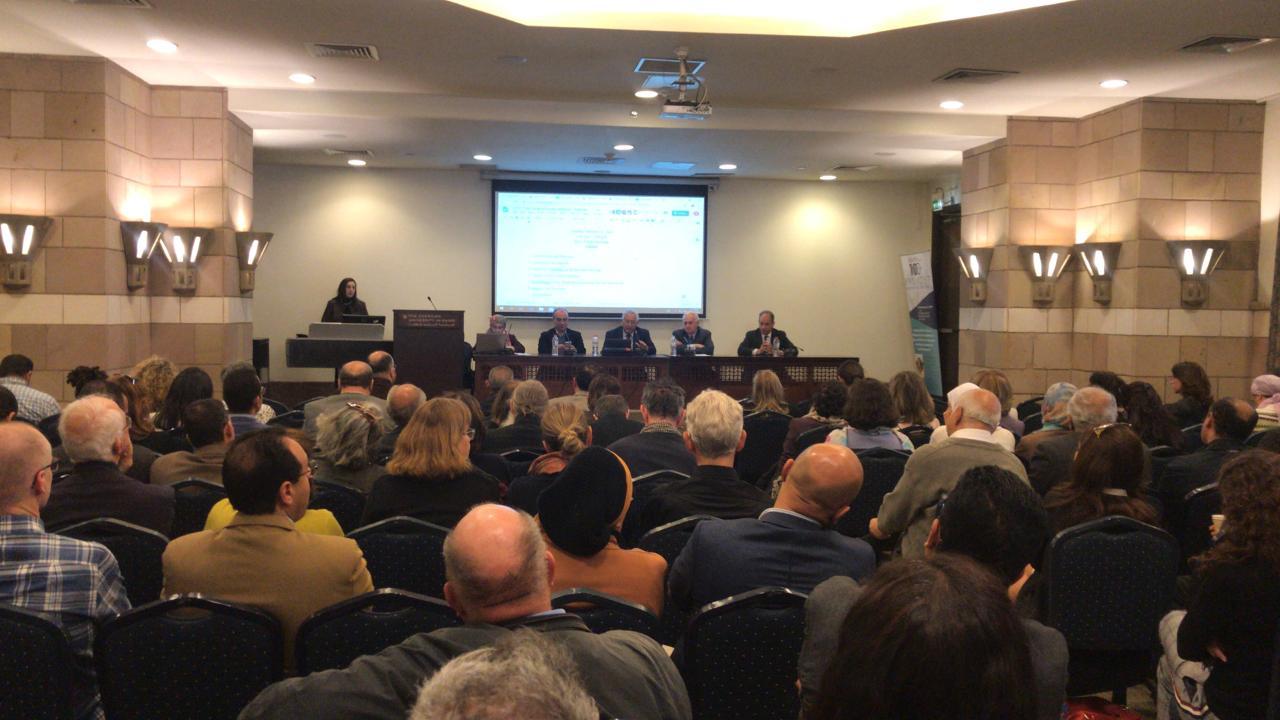Points of Contention: Beyond the Faculty Handbook
By: Basant Samhout
@basantsamhout
The University Senate voted on February 26 to allow the joint faculty-administration working group to continue modifying the Faculty Handbook (FHB).
The working group’s mandate had been brought into question during the February 25 general faculty meeting following the Senate vote of no confidence in President Francis Ricciardone.
The working group consists of representatives from the Senate Faculty Affairs Committee (FAC) and Senate Chair Amr Shaarawi, as well as administrators including the Provost, John Swanson, the Associate Provost for Assessment, Evaluation and Special projects, and Kathleen O’Neill, the Director of Academic Affairs Projects.
This working group meets weekly with Ricciardone as it is mandated to amend the FHB in three categories: Points of Contention, which are mainly the points of concern relevant to the Board of Trustees (BoT), Policy or Procedural-Related Amendments and other minor modifications.
The working group is to submit a final draft of the FHB for approval to the BoT by April 15.
The Senate sees the FHB as a document of “policies and regulations [which] when adopted, forms an integral part of the faculty member’s employment agreement”.
It comprises the principles and procedures that govern faculty life at AUC, “such as academic freedom, faculty appointments, criteria for promotions and leaves of absence, instructional, research and service responsibilities, and other important policies relevant to members of the teaching and research faculty”.
FAC Chair Hanadi Salama told the faculty on February 25 that some of the contentious issues were resolved but that others remained outstanding.
The current FHB was drafted in 2011 by the Senate FAC, and signed, written and overseen by then-AUC President Lisa Anderson.
It was designed to replace the Policies, Procedures and Practices (PPP) document, which acted as a binding employment document outlining general principles. However, the PPP was seen as outdated, and therefore the FHB was meant to implement new, more relevant measures.
Professor of Computer Systems Engineering Amr El Kadi discovered in 2014 that some tenets of the FHB were not being implemented.
Between 2011 and 2014, the faculty thought that the FHB was binding, as was its predecessor the PPP. The concept that the FHB was binding also came from the fact that the president, at the time, co-wrote and signed the FHB, and according to the BoT bylaws, the president acts on behalf of the BoT.
However, AUC’s General Counselor and Chief Compliance Officer Sunanda Holmes, said on February 25 that the BoT was not aware of the FHB and therefore declared it nonbinding in 2014.
“We’ve made compromises and reached some agreements on the FHB. There is not much more to do except wait for the BoT’s response after they receive the FHB draft in April,” said current Senate Vice Chair El Kadi.
“The BoT’s response will determine whether it’s going to be hell, or if we will be propelled forward,” he added.



